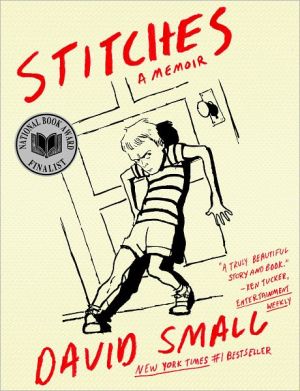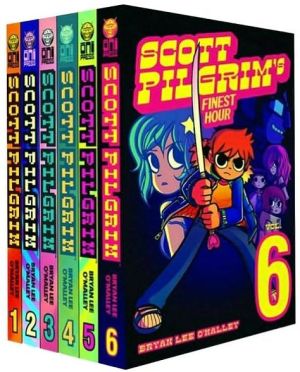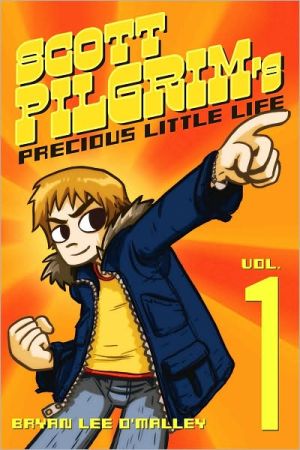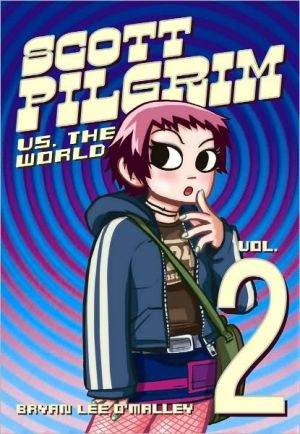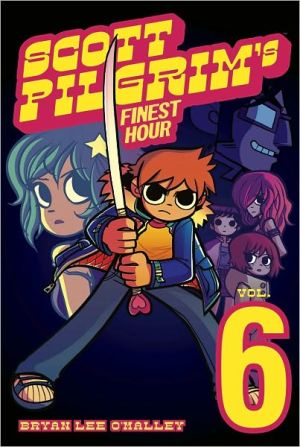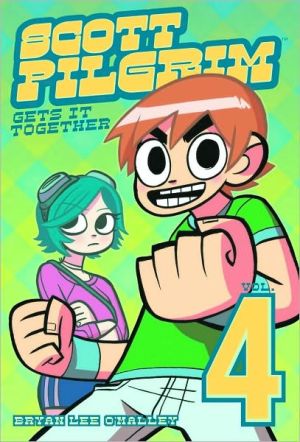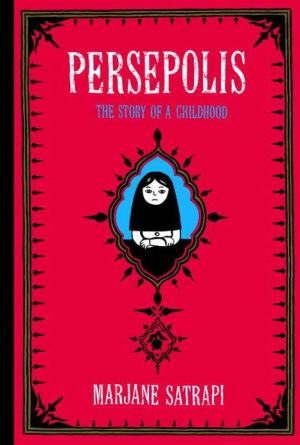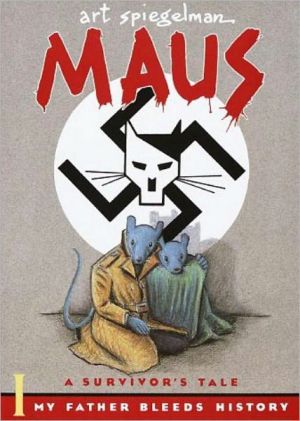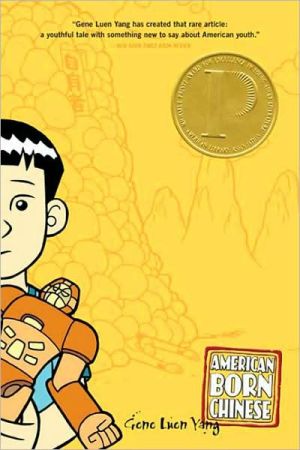Stitches
The #1 New York Times bestseller and National Book Award finalist that "breaks new ground for graphic novels" (Francois Mouly, art editor, The New Yorker).\ David Small, a best-selling and highly regarded children's book illustrator, comes forward with this unflinching graphic memoir. Remarkable and intensely dramatic, Stitches tells the story of a fourteen-year-old boy who awakes one day from a supposedly harmless operation to discover that he has been transformed into a virtual mute—a vocal...
Search in google:
The #1 New York Times bestseller and National Book Award finalist that "breaks new ground for graphic novels" (Francois Mouly, art editor, The New Yorker).The Barnes & Noble ReviewA stitch in time can save nine, but Caldecott-winning children s book author David Small s unloving parents spared him not a one, as Stitches, his graphic memoir of his harrowing childhood, makes clear. Small was a sickly child, and his radiologist father subjected him to repeated X-rays, believing it would cure his sinus problems. When a lump materialized on his neck, his mother complained about the expense and put off surgery for three years. Small emerged from multiple operations at 14 unable to speak, and only learned later that he d had cancer. Like Alison Bechdel s genre-bending Fun Home, Stitches melds ink-washed drawings and incisive captions to tell Small s devastating story about growing up in a silent, angry household with miserable parents. With its menacing, child s-eye view of Detroit smokestacks, hospital corridors, and scowling, bespectacled adult faces looming up close, Stitches reads like a silent horror movie. Communication in the Small household was nonverbal: "Mama had her little cough," he opens, which augured her unexplained rages. His father "thumped a punching bag. That was his language." His older brother, who grew up to become a percussionist with the Colorado Symphony, beat his drum. And little David, "born anxious and angry," got sick. David is saved by a wonderful psychiatrist, depicted as Lewis Carroll s White Rabbit, who helps defang his nightmares -- including his parents -- and makes him realize that drawings are his language. Small writes, "Art became my home. Not only did it give me back my voice, but art has given me everything I have wanted or needed since." Stitches leaves the reader speechless -- stunned at its power and perfect pitch. --Heller McAlpin
\ From Barnes & NobleThis graphic memoir by Caldecott Medal-winning children's book author/illustrator David Small is singular. So singular that we will leave its description to his fellow artist, Pulitzer Prize-winning cartoonist Jules Feiffer: "Like the boy in this autobiographical novel my first reading of Stitches left me speechless. And in awe. David Small presents us with a profound and moving gift of graphic literature that has the look of a movie and reads like a poem. Spare in words, painful in pictures, Small, in a style of dry menace, draws us a boy's life that you wouldn't want to live but you can't put down. From its first line four pages in, 'Mama had her little cough,' we know that we are in the hands of a master."\ \ \ \ \ Miami Herald“A breathtaking, horrific, and ultimately redemptive work.”\ \ \ Washington Post“Small . . . employs angled shots and silent montages worthy of Alfred Hitchcock.”\ \ \ \ \ Jules Feiffer“A profound and moving gift of graphic literature that has the look of a movie and reads like a poem.”\ \ \ \ \ Michael Sims…brilliant and heartbreaking…Although the dialogue and narration are well written and moving, Small often shows us the story without a word of speech or commentary—not just for a few panels but for several pages at a time. He employs angled shots and silent montages worthy of Alfred Hitchcock. Revelations trigger haunting flashbacks in which we see an earlier scene from a new point of view. Small's drawing is masterful and evocative…think of Daniel Clowes's Ghost World or Megan Kelso's Squirrel Mother stories or Art Spiegelman's Maus. Now, to the list of powerful works of art in this versatile medium, we can add the horrific but ultimately redemptive Stitches.\ —The Washington Post\ \ \ \ \ Publishers WeeklyIn this profound and moving memoir, Small, an award-winning children's book illustrator, uses his drawings to depict the consciousness of a young boy. The story starts when the narrator is six years old and follows him into adulthood, with most of the story spent during his early adolescence. The youngest member of a silent and unhappy family, David is subjected to repeated x-rays to monitor sinus problems. When he develops cancer as a result of this procedure, he is operated on without being told what is wrong with him. The operation results in the loss of his voice, cutting him off even further from the world around him. Small's black and white pen and ink drawings are endlessly perceptive as they portray the layering of dream and imagination onto the real-life experiences of the young boy. Small's intuitive morphing of images, as with the terrible postsurgery scar on the main character's throat that becomes a dark staircase climbed by his mother, provide deep emotional echoes. Some understanding is gained as family secrets are unearthed, but for the most part David fends for himself in a family that is uncommunicative to a truly ghastly degree. Small tells his story with haunting subtlety and power. (Sept.)\ \ \ \ \ VOYACaldecott winning artist Small relates the harrowing story of his childhood from ages six to sixteen under the less-than-watchful eye of his coolly distant father and his emotionally abusive mother. At six, he endures physical abuse from his deranged maternal grandmother. At eleven, as a "cyst" appears on his neck, his parents ignore his medical problems, burn his books, and focus on their own needs. At fourteen, he believes he is entering the hospital for the easy removal of the neglected "cyst," but leaves without one of his vocal folds or the ability to speak above a croak. After discovering he had cancer thanks to frequent x-rays by his radiologist father aimed at curing his sinus problems, David's attitude gets him sent to a boarding school. Later sessions with a psychiatrist only lead him to leave home before he is done with high school. Small's first title for much older audiences is sequential art at its most effective and affecting. The ink wash panels with some full-bleed illustrations expertly convey first his innocence and confusion and then his horror and anger. Although the ending offers a redemptive glimmer of forgiveness, readers may find it as difficult to take that final step as it is to put this one down before the final pages turn. This one definitely takes its place on the shelf next to Alison Bechdel's Fun Home (Houghton Mifflin, 2008). Reviewer: Timothy Capehart\ \ \ \ \ Library Journal"Stitches" refers to the clumsy sutures on 14-year-old David's neck after a cancer operation he wasn't supposed to know was cancer—an operation that renders him mute for a long time. More subtly, "stitches" could allude to how David's family members clumsily hold together their outwardly normal but unhappy lives: dad a stiff radiologist taking refuge in the liberal application of "healing" X-rays, mother a furious, cruel force, the cranky and feisty grandmother. Amidst enforced family silence about the parents' marriage and this unexpected handicap, a psychiatrist tells David a simple truth, freeing him to find his voice in art and, later, win awards for children's picture books. In fact, it's Small's art that lifts his memoir into the extraordinary. His seemingly simple black-and-white wash captures people, emotions, relationships, and plot subtleties with grace, precision, and a flawless sense of graphic narration. VERDICT In no way the latest ho-hum episode of Dysfunctional Family Funnies, Stitches is compelling, disturbing, yet surprisingly easy to read and more than meets the high standard set by the widely praised Fun Home. With some sexual issues; highly recommended for older teens up.—M.C.\ \ \ \ \ School Library JournalGr 10 Up–Small is best known for his picture-book illustration. Here he tells the decidedly grim but far from unique story of his own childhood. Many teens will identify with the rigors of growing up in a household of angry silences, selfish parents, feelings of personal weakness, and secret lives. Small shows himself to be an excellent storyteller here, developing the cast of characters as they appeared to him during this period of his life, while ending with the reminder that his parents and brother probably had very different takes on these same events. The title derives from throat surgery Small underwent at 14, which left him, for several years, literally voiceless. Both the visual and rhetorical metaphors throughout will have high appeal to teen sensibilities. The shaded artwork, composed mostly of ink washes, is both evocative and beautifully detailed. A fine example of the growing genre of graphic-novel memoirs.–Francisca Goldsmith, Halifax Public Libraries, Nova Scotia\ \ \ \ \ Kirkus ReviewsEmotionally raw, artistically compelling and psychologically devastating graphic memoir of childhood trauma. An award-winning illustrator of children's books (That Book Woman, 2008, etc.), Small narrates this memoir from various perspectives of his boyhood in the 1950s. He considered his radiologist father one of the "soldiers of science, and their weapon was the X-ray . . . They were miraculous wonder rays that would cure anything." Or so it seemed to a young boy who realized early on that his family was what now would be labeled "dysfunctional." His mother was cold, neurotic and acquisitive, with little love for either her spouse or their children. His older brother had little use for or contact with his younger sibling. His father was barely a presence in the household. The author was chronically ill, with treatment prescribed by his father, including X-rays. When Small was ten, he developed a growth on his neck that his parents were too preoccupied to have diagnosed, though friends of the family urged them to. It wasn't until after he turned 14 that he finally underwent surgery for what was initially considered a harmless cyst but turned out to be a cancerous tumor. A second surgery left him with only one vocal cord, all but voiceless as well as disfigured. Terse and unsentimental throughout, the narration becomes even sparer once the author loses his voice, with page after wordless page filled with stark imagery. Yet the intensity of the artistry reveals how he has been screaming inside, with nightmares that never fully abate when he is awake. Psychological therapy helps him come to terms with his condition, as does his precocious artistry. While the existence of this suggestssomewhat of a happy ending, the reader will find forgiving and forgetting as hard as the author has. Graphic narrative at its most cathartic. Author tour to New York, Chicago, Detroit, San Francisco, Denver, Minneapolis, Ann Arbor, Mich., Kalamazoo, Mich., Boston. Agent: Holly McGhee/Pippin Properties\ \ \ \ \ The Barnes & Noble ReviewA stitch in time can save nine, but Caldecott-winning children's book author David Small's unloving parents spared him not a one, as Stitches, his graphic memoir of his harrowing childhood, makes clear. Small was a sickly child, and his radiologist father subjected him to repeated X-rays, believing it would cure his sinus problems. When a lump materialized on his neck, his mother complained about the expense and put off surgery for three years. Small emerged from multiple operations at 14 unable to speak, and only learned later that he'd had cancer. Like Alison Bechdel's genre-bending Fun Home, Stitches melds ink-washed drawings and incisive captions to tell Small's devastating story about growing up in a silent, angry household with miserable parents. With its menacing, child's-eye view of Detroit smokestacks, hospital corridors, and scowling, bespectacled adult faces looming up close, Stitches reads like a silent horror movie. Communication in the Small household was nonverbal: "Mama had her little cough," he opens, which augured her unexplained rages. His father "thumped a punching bag. That was his language." His older brother, who grew up to become a percussionist with the Colorado Symphony, beat his drum. And little David, "born anxious and angry," got sick. David is saved by a wonderful psychiatrist, depicted as Lewis Carroll's White Rabbit, who helps defang his nightmares -- including his parents -- and makes him realize that drawings are his language. Small writes, "Art became my home. Not only did it give me back my voice, but art has given me everything I have wanted or needed since." Stitches leaves the reader speechless -- stunned at its power and perfect pitch. --Heller McAlpin\ \
